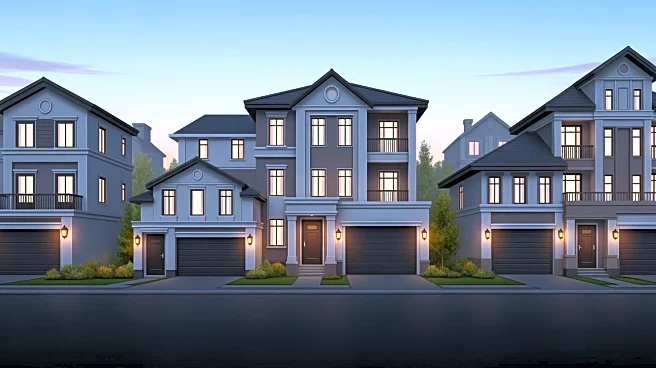What's Happening?
Portage has finalized the establishment of its first five residential tax increment financing (TIF) districts. The Redevelopment Commission unanimously approved these districts, which include Rivertrace,
Providence at Farmington, Bauer Farm, Sandy Trail, and Swanson Trails. These developments are expected to bring 589 new single-family homes, 478 paired patio homes, 38 townhomes, and 101 cottage homes to the city. Developers have agreed to make annual payments totaling approximately $622,000 until the homes appear on the tax rolls, generating similar revenue for the Redevelopment Commission. The funds will be used to support public safety needs in the city.
Why It's Important?
The approval of these residential TIFs is significant for Portage as it facilitates urban development and addresses public safety funding. The influx of new homes will likely boost the local economy, increase property values, and attract new residents, enhancing the city's growth prospects. The financial arrangement with developers ensures that public safety services are adequately funded, addressing potential challenges associated with expanding neighborhoods. This development reflects a strategic approach to urban planning and community development, benefiting both residents and the local government.
What's Next?
As the residential TIF districts are developed, Portage will likely experience increased demand for city services, including utilities and public safety. The city may explore additional public-private partnerships to further support infrastructure and community services. Stakeholders, including residents and local businesses, will be keen to see how these developments impact the city's growth and quality of life. Monitoring the progress of these TIF districts will be crucial for assessing their long-term impact on the community.
Beyond the Headlines
The creation of these TIF districts may set a precedent for other cities looking to balance urban development with public safety funding. The innovative financial arrangement with developers could serve as a model for similar initiatives, promoting sustainable growth and community well-being.











